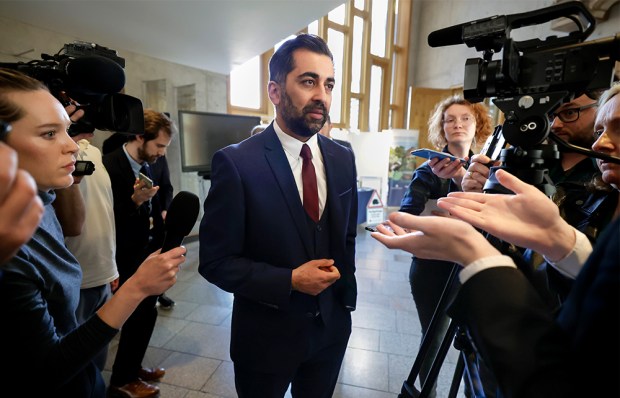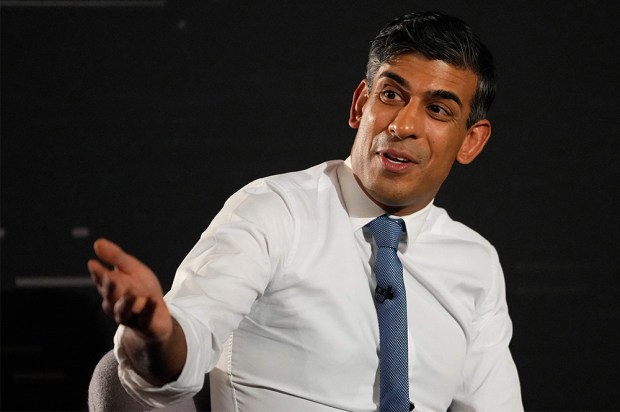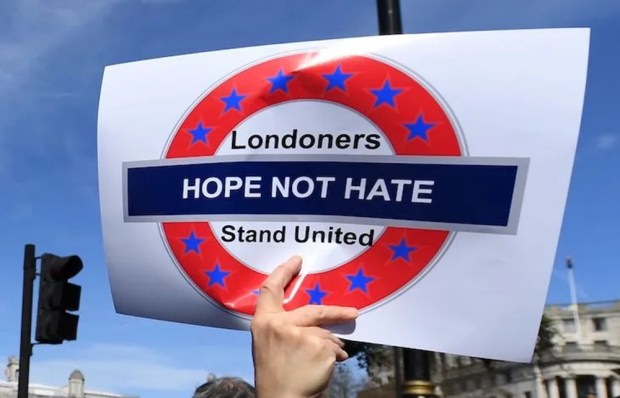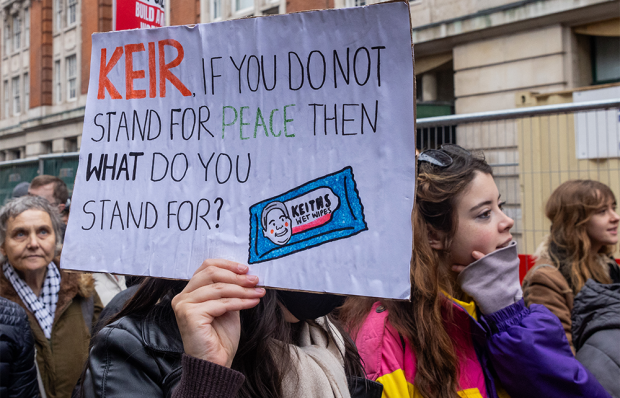After the narrow victory of the Brexit campaign in 2016, it was often said that the result would lead to the break-up of the United Kingdom. Just 38 per cent of Scots voted for Brexit, so Nicola Sturgeon argued that Scotland was being taken out of the EU against its will, necessitating a second Scottish independence referendum. And in Northern Ireland, the Democratic Unionist party blocked the formation of a new power-sharing administration last year in protest at the Westminster government’s approach to the Brexit Protocol.
Now things look very different. DUP MPs may have voted against the Windsor Framework, but polls suggest that Rishi Sunak’s renegotiated Brexit deal is supported by most Northern Irish voters – just 17 per cent oppose it. Unionist politicians will be under pressure to return to power-sharing in the coming months as trade between Northern Ireland and Great Britain becomes easier.
Yet the factor that is giving both Labour and the Tories the biggest cause for optimism about the future of the Union is the election of Humza Yousaf as the new First Minister of Scotland. ‘We only call him by his full name: Humza Useless,’ explains a Labour figure. Conservatives agree. ‘It’s the perfect result,’ says a senior government source. Yousaf’s victory was slim – just 52 per cent of the vote – but instead of trying to unite his party he offered Kate Forbes a big demotion, which she refused, instead resigning from government. The SNP looks deeply split. ‘It’s marvellous,’ says a senior minister.
In the past, nationalists have tended to show a unity that Tories envied. Alex Salmond was the clear favourite in 2004, and Sturgeon’s candidacy in 2014 was uncontested. Now the nationalist movement is fractured. Salmond leads Alba, his own party, and the Scottish electorate has been treated to five weeks of infighting between Yousaf, Forbes and Ash Regan, in which their differences have been on full display.
Opposition MSPs joke that they don’t even need to bother coming up with their own Yousaf attack lines, they can just recite Forbes’s words from the debates. ‘You were a transport minister and the trains were never on time. When you were justice secretary, the police were strained to breaking point. As health minister, we’ve got record high waiting times. What makes you think you could do a better job as first minister?’ Her summation of his weaknesses is so popular among unionists that some joke about setting it as their phone ringtone.
In Westminster, SNP politicians, preparing for an election next year, watch in dismay. ‘He’s made his first mistake less than 24 hours in,’ says one party supporter of the loss of Forbes: ‘48 per cent of the party don’t back him.’ Yousaf’s blunder has gone down ‘like a cup of cold sick with the members’. Ivan McKee has also quit as business minister after being offered a job he saw as a demotion. These resignations are an early indication that Yousaf, insecure and easily wounded, plans to continue Sturgeon’s style of governing, isolating those who criticise him.
There has been another recent party leader who did precisely this after winning an election: Liz Truss, who sent Sunak and his supporters to political Siberia. When her premiership ran into trouble, she found that a large part of her party was in no mood to help her. Sunak stayed quiet, went to the back benches and bided his time. He did not have to wait long. It’s not impossible that Forbes is in a similar position. ‘Humza has inherited a bad hand and he is a lot less competent than Nicola,’ says one Tory source. ‘It will be all downhill from here.’
Some Labour politicians would have preferred Forbes to have won the leadership race, on the basis that her conservative views on social issues and the economy might have allowed them to caricature her as a ‘tartan Tory’. ‘Kate was better for us for 2024 – she moves the party right,’ says one figure. ‘Yousaf is better for 2026 [the date of the next Scottish parliament election] – he won’t improve things in the long-term.’ Yousaf will instead hug the Scottish Greens close and may even try to revive the SNP’s strikingly unpopular reform for gender self-ID.
Labour still plans to make gains from the SNP of at least ten seats in the general election. At a gathering last weekend in London, all parliamentary candidates were invited for a pep talk on preparing for the election – though senior figures stressed there was a long way to go and many voters would not make up their minds until the last minute.
For the Tories, Forbes was viewed by ministers as the far trickier opponent who could even woo some Scottish Tory voters. Sturgeon was a major recruiting sergeant for unionists: they would come out to vote just to stop her. The view in No. 10 is that Yousaf, the Sturgeon continuity candidate, will also energise core Tory voters.
Sunak’s strategy is to kill with kindness, starving a party that feeds on grievance. Downing Street made sure to arrange a call for Yousaf’s first day and plans to be proactive in reaching out, so the nationalists cannot claim they are being ignored by Westminster. At the start of the year, when Sunak met Sturgeon for an ‘informal and private working dinner’ near Inverness, the meeting was very cordial, according to those in the room. Whereas Sunak’s predecessors would often just say they would get back to Sturgeon on various points and then fail to do so, Sunak proved more challenging, clashing with her on nurses’ pay and budget spending.
The real goal for all unionists is stopping Scottish independence. A strong Union helps both the Tories and Labour. If support for independence is low, Keir Starmer can avoid questions about what happens if he should fall short of a majority in the next general election and has to rely on SNP votes to govern, while the Tories can foster a sense that the government is working rather than staggering from crisis to crisis.
Yousaf’s biggest problem is not his poor track record in government but the fact that he has no levers left to pull to achieve his party’s founding aim. His demands for an official referendum will simply be rejected by No. 10. In the leadership contest, both Forbes and Yousaf tried to temper hopes of independence anytime soon. Unionists now have a golden opportunity to advance their cause in the coming year.
Got something to add? Join the discussion and comment below.
Get 10 issues for just $10
Subscribe to The Spectator Australia today for the next 10 magazine issues, plus full online access, for just $10.
You might disagree with half of it, but you’ll enjoy reading all of it. Try your first month for free, then just $2 a week for the remainder of your first year.















Comments
Don't miss out
Join the conversation with other Spectator Australia readers. Subscribe to leave a comment.
SUBSCRIBEAlready a subscriber? Log in